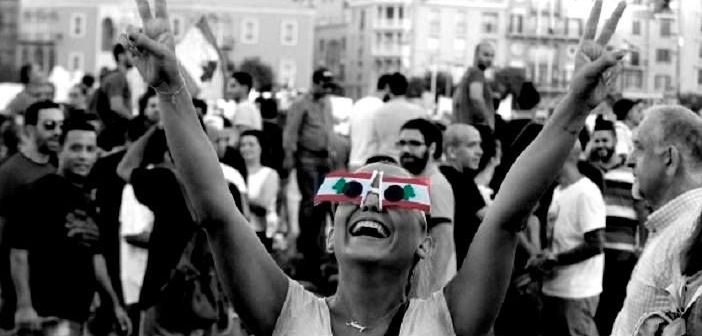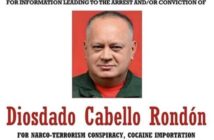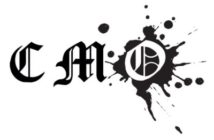“Small countries are more hospitable for democratic ideas and practices then their “large” neighbours.” (G.Salame, Democracy without Democrats)
صدق قول المحلّل والكاتب السياسي غسّان سلامه، أن الدول الصغرى هي من أكثر البلدان قبولاً بفكرة الديمقراطية وبطبيقها مقارنةً مع البلدان الأكبر حجماً. فلبنان مثلاً اعتمد نظاماً ديمقراطياً يرتكز على الطائفية ليتجنّب الوقوع في حروبٍ أهلية وللحفاظ على الوئام الوطني. لذا أعطى كل طائفة تمثيلاً ومقعداً في البرلمان وقسّم وظائف الدولة بحسب خطوطٍ دينية. غير أن هذا التقسيم حوى في طياته فساداً ومحسوبيةً ورشوة. لذا شهد لبنان استنزافاً للأدمغة جراء شحّ الوظائف فأثر ذلك سلباً على ازدهاره. أمّا المحاولات الكثيرة لكشف الفساد من قبل المجتمع المدني فباءت بالفشل. فالمظاهرات في الشوارع تم قمعها بطرقٍ عدائية لاستبعاد خطر كشف العديد من الوزراء ورجال الدين الفاسدين في الحكومة الذين يستنذفون موارد الدولة. إلى جانب وجود حزب الله، كتلة مسلحة مستقلة عن الدولة ذات تمويلٍ ودعم خارجي تسعى إلى زيادة هيمنة طائفتها في الساحة السياسية. فهل يُعتبر لبنان حقاً بلداً ديمقراطياً أم أن الديمقراطية هي وجهاً غير مكتملاً من أوجهه المتعددة؟
It has long been said that size matters when it comes to measuring how powerful the state is; however, being small is not necessarily a complete failure. The case of Lebanon has demonstrated how being small in size can also “come in handy”, especially when dealing with such a pluralistic and multi-confessional country. Not with standing of course, all the downside of being a small state (i.e. low gross domestic product, weak military power, less governmental control etc.).
Hence, Lebanon has tailored a special form of democracy, a consensus democracy; one that accommodates all 18 religions in order to preserve its national unity. Yet, to what extent has this tailor-made approach to democracy been effective? With effectiveness being measured according to the extent to which “a rule induces changes in behaviour that furthers the rule’s goals; improves the state of the underlying problem; or achieves its policy objective” (R. Keohane and O. Young).
The Lebanese governmental system is enshrined in its colonial history. Lebanon has lived for twenty three years under the French mandatory power, which has imprinted its mode of government on the country. Being a pluralistic country, adopting liberal democracy is the only way to reconcile social and religious divisions and preserve peace and national unity. This pluralistic structure of the Lebanese society has paved the way for a smooth democratization process and has prohibited authoritarian regimes to take its toll on the country. Through establishing a parliamentary representation on a strictly confessional basis, it was the way Lebanon recognized its pluralistic identity.
In the recent past, Lebanon proved to be a bastion of progress in its slowly developing entourage. In the media world, free press (in the sense that press is the property of the private sector) has flourished with individuals expressing different opinions than the one adopted by the rulers of the country. Civil societies and activists have been able to take to the streets and raise their voice against aberrant practices undertaken by the government (i.e. the garbage crisis), legislative elections being held, the education system being one of the best in the Middle East, in addition to the latest reform in the Lebanese security apparatus that prevented a terror attack on Hamra Street in Beirut on Saturday the 22nd of January. Compared to its neighbourhood, Lebanon has escaped authoritarian regimes that took a hold of many of its neighbours in the wake of their independence (i.e Syria, Iraq, Iran). Yet, with this being said, Lebanon has been on a perpetual decline for the last decade due to persisting “structural problems” (S. Keukeleire and T. Delereux)
On a state/political level, Lebanon has adopted a consensual democratic system to cope with the religious diversity in the country. Parliamentary representation is divided along sectarian principles so as to accommodate all religious minorities. However, some religious minorities (the Shiites in this case) are dissatisfied with this arrangement and seek a higher level of influence, through creating a powerful para-military organisation with strong ties to Iran (Hezbollah) that contributed to maintaining the presidential vacuum for more than two years. It wasn’t until recently, when Michel Aoun signed a cooperation pact with Hezbollah that the country was cleared of this long-lasting presidential void. Aoun proclaimed himself leader of the Christians and demanded his “right” to the presidency that he pursued for so long. The role of Hezbollah and its Iranian ally played in draining Lebanese institutions and taking advantage of the presidential vacuum shows the extent to which this self-proclaimed independent army has influence on the governmental and security apparatus of the country, especially when Hezbollah dispatched its fighters to Syria facing limited to no opposition from their Iranian sponsors.
Another very imminent problem that is rooted in the Lebanese daily life is the corruption of state institutions, complemented by bribery, and favouritism. This induced unfair distribution of employment (among other pitfalls) that leads to a high brain drain of the young generation. Hence, Lebanon lost all hope for positive change in the near future.
In fact, the country ranks 28th on the corruption scale classified among the highly corrupt countries in 2016 according to Transparency International (Corruption perception index 2016) and the world’s fourth least effective government according to the World Economic Forum. Corruption stems not only from individuals/politicians taking advantage of their powerful position but also from religious leaders that have been exposed on several occasions for taking advantage of their positions with far little accountability.
Another perfect example that illustrates the level of corruption of our political elite is the garbage crisis, in which politicians exchange favours at the expense of the citizens making garbage processing in Lebanon the most expensive worldwide. It is also important to highlight how the demonstrations were violently repressed by the Lebanese security apparatus, because it was deemed legitimate to contain such demonstrations as they undermine this long lasting corrupt system and point fingers at corrupted ministers and leaders in the government. As such, Lebanon is a perfect example of “a democracy without democrats” (G. Salame).
In a nutshell, the Lebanese consensual and “communitarian” democracy has played in favour of maintaining civil peace but overlooked the root changes that must be made within the government in order to uphold a transparent and accountable system. Hence, underlying problems persist and are exacerbated recently with the onset of the Syrian war and the high influx of refugees. Lebanon has lived through the civil war and served as backyard for others to conduct their wars, but this only confirms the fact that small pluralistic countries are prone to civil unrest and need special attention in order to find a common ground that can embody all its societal divergence and political cleavages.
As Jean-Jacques Rousseau once said in The Social Contract: “No government is so subject to civil wars and internal unrest as the democratic or popular government, because no other is inclined to change its shape so much and so continually and no other demands more vigilance and courage to maintain it in its shape.”




